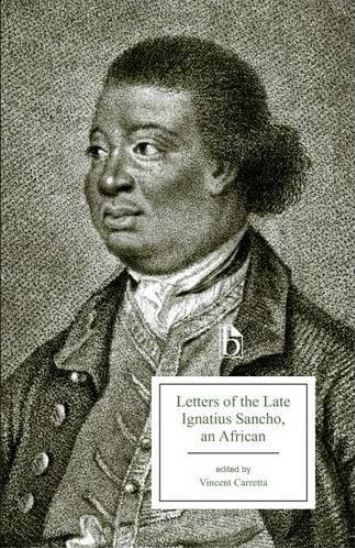Sancho Writes to the Newspapers
Sancho wrote several letters to the newspapers that we know about, and there may be many more that we don't know about. These two, both written in the spring of 1778, show the range of his interventions in the public sphere. The first letter, which in fact was never published, shows Sancho's contribution to the campaign to pardon the Reverend William Dodd, a charismatic preacher and chaplain to the King, who defrauded a nobleman to pay off debts incurred by womanising and high living. The fact that the letter wasn't published probably didn't alter Dodd's fate. He was hanged at Tyburn after the King himself admitted that he had no power to over-ride the law. The second letter, signed with Sancho's pen-name of Africanus, is written in the context of the war with the American colonists that had been under way since 1775. Sancho's suggestion to raise a regiment of hairdressers rests on the observation that they are 'powder-proof'. In the 1770s, both men and women of fashion wore hair powder, a substance made of perfumed flour that, fortunately, was not as combustible as gunpowder.
1. To the Editor of The Morning Post (March 1778)
SIR,
I am one of the many who have been often edified by the graceful eloquence and truly Christian doctrine of the unfortunate Dr. Dodd:—as a Divine, he had, and still has, my love and reverence; his faults I regret; but, alas! I feel myself too guilty to cast a stone: Justice has her claims—but—Mercy, the anchor of my hope, inclines me to wish he might meet with Royal clemency-his punishments have already been pretty severe—the loss of Royal favor—the cowardly attacks of malicious buffoonry—and the over-strained zeal for rigid justice in the prosecution.—Oh! would to God the reverend bishops, clergy, &c. would join in petitioning the throne for his life!—it would save the holy order from indignity, and even the land itself from the reproach of making too unequal distinctions in punishments. He might, by the rectitude of his future life, and due exertion of his matchless powers—be of infinite service—as chaplain to the poor convicts on the river, which would be a punishment, and, at the same time, serve for a proof or test of his contrition—and the sincerity of a zeal he has often manifested (in the pulpit) for the service of true Religion—and he may rise the higher by his late fall—and do more real service to the thoughtless and abandoned culprits, than a preacher, whose character might perhaps be deemed spotless: if this hint should stimulate a pen, or heart, like the good B——p of Chester's, to exert itself in the behalf of a man who has formerly been alive to every act of Heaven-born charity—the writer of this will have joy, even in his last moments, in the reflection that he paid a mite of the vast debt he owes Dr. Dodd as a preacher.
I.S.
2. To the Editor of The General Advertiser (29 April 1778)
FRIEND EDITOR,
"In the multitude of Counsellors there is wisdom," sayeth the preacher—and at this present crisis of national jeopardy, it seemeth to me befitting for every honest man to offer his mite of advice towards public benefit and edification.—The vast bounties offered for able-bodied men sheweth the zeal and liberality of our wise lawgivers—yet indicateth a scarcity of men. Now, they seem to me to have overlooked one resource (which appears obvious); a resource which would greatly benefit the people at large (by being more usefully employed), and which are happily half-trained already for the service of their country—by being—powder proof—light, active, young fellows:—I dare say you have anticipated my scheme, which is to form ten companies at least, out of the very numerous body of hair-dressers—they are, for the most part, clean, clever, young men—and, as observed above, the utility would be immense:—the ladies, by once more getting the management of their heads into their own hands, might possibly regain their native reason and œconomy—and the gentlemen might be induced by mere necessity to comb and care for their own heads-those (I mean) who have heads to care for.—If the above scheme should happily take place, among the many advantages too numerous to particularize, which would of course result from it—one not of the least magnitude would be a prodigious saving in the great momentous article of time;—people of the ton of both sexes (to speak within probability) usually losing between two or three hours daily on that important business.—My plan, Mr. Editor, I have the comfort to think, is replete with good—it tends to serve my king and country in the first instance—and to cleanse, settle, and emancipate from the cruel bondage of French, as well as native frizeurs, the heads of my fellow-subjects.
Yours, &c.
AFRICANUS
About this extract
Sancho's letters to The Morning Post and The General Advertiser both first appeared in those newspapers in 1778 but were then reproduced in The Letters of the Late Ignatius Sancho, an African, published in 1782.
Sancho's Letters was published in five different editions between 1782 and 1803 before going out of print until the 1960s. The book is now available in several editions, including a paperback edition with notes and an introduction, edited by Vincent Carretta and available from:




